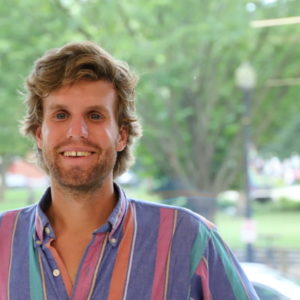Climate Education
Environmental initiatives in Africa adapt amid the pandemic
June 24, 2020
COVID-19 has disrupted our everyday lives.
Some see a silver lining in the environmental benefits of nationwide lockdowns to prevent the spread of the virus — a decrease in daily greenhouse gas emissions and air pollution and the recovery of habitats (though that silver lining is thin: global CO2 levels are highest ever recorded).
Environmental efforts, such as tree planting, cleanups and climate education, have also been hurt by the crisis. And nowhere is that more apparent than Africa.
One of Earth Day Network’s partners in Africa, FutureSavers Sustainable Development Initiative, educates and increases public awareness on climate change by working with youth. Lately, however, the initiative has struggled during the pandemic.
This year, the organization developed a tree-planting campaign with a goal to plant 1,000 trees a week at five schools across five Nigerian regions. In addition to reforesting rural areas, the initiative establishes nurseries and educates youth about the importance of the local environment.
But with students and faculty at home from mandated school closures from COVID-19, previously established tree nurseries were left unmonitored, environmental club meetings have been canceled and classrooms have been left empty. All this has created a roadblock for educating and developing future environmental leaders.
“Students and teachers are not connected like they were before the pandemic,” said Seyi Ransom, founder of FutureSavers. “There is a growing danger for a knowledge gap, which could affect everything from the environment to the economy. This is a wakeup call for education and leaders in Nigeria and all of Africa. Not just in the four corners of the classroom, but finding a way to connect students with the world.”
Many current projects are abandoned and future programs delayed. Fortunately, some initiatives have pivoted to develop nurseries at individual households. FutureSavers has responded by developing the “Tree a Week” campaign, where everyday citizens are tasked with planting a different indigenous tree a week and establishing nurseries in their homes.
Students in much of Africa are also suffering from the lack of digital infrastructures that could provide an outlet to learn and connect with their lessons outside of the classroom.
According to UNESCO, some 89% percent of students in sub-Saharan Africa do not have access to household computers and 82 percent lack internet access. Teachers, environmentalists and community leaders are quickly realizing the need for change and innovation.
Students are rightfully owed easily accessible education that informs the world around them. Education that is inclusive and integrated with the outside world and addresses subjects like climate change is critically important.
Visit Earth Day Network’s Education and Africa pages to learn more about our efforts to get climate in the classroom. And to plant a tree, donate to The Canopy Project.
Photo at top courtesy of FutureSavers Sustainable Development Initiative.
